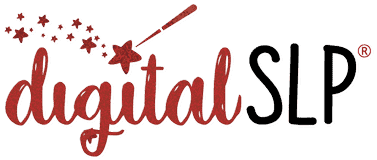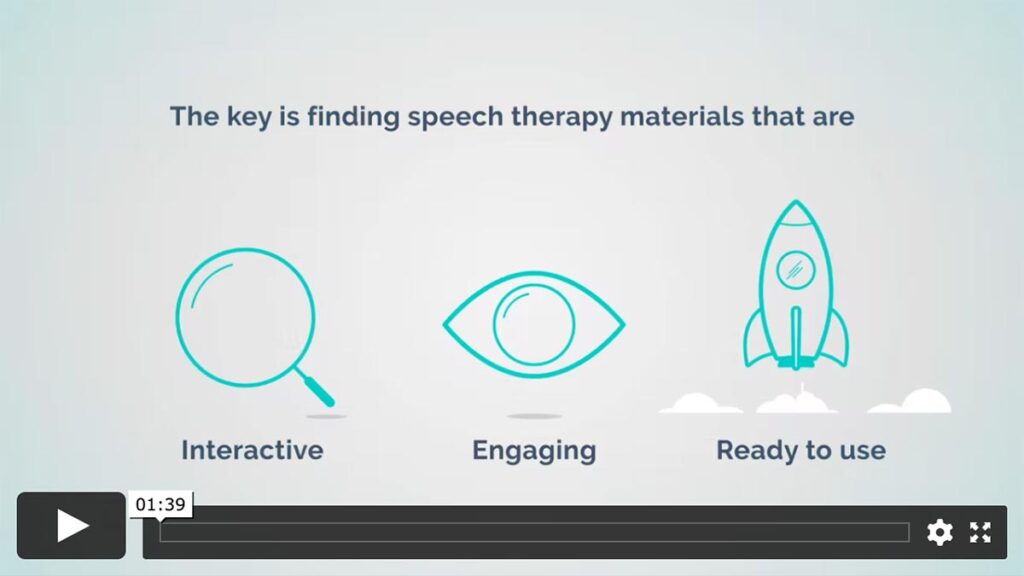This post contains affiliate links for which we may receive compensation at no additional cost to you. Click here to read our full affiliate policy.
In this post, we will discover ‘Five Ways to Bring Sharks into Speech Therapy’. These strategies promise to captivate, engage, and motivate your students, while reinforcing their speech and language skills. So, brace yourself for a thrilling plunge into the deep blue sea as we navigate these shark-infested waters of speech therapy techniques. Let’s dive in!
Over 30 years ago, executives from the Discovery Channel were brainstorming show possibilities when someone casually mentioned the idea of “shark week.” It seemed promising enough to scribble down on a napkin, and in 1988, the very first Shark Week was born. Every July since then, Discovery has offered a weeklong celebration of sharks, which has now become the longest-running cable show in history.
As the success of Shark Week reminds us, people are into sharks. And for whatever reason, many speech students are REALLY into sharks. So, let’s talk about how to create your very own “Speech Shark Week!” If you see clients during the summer and you’re able to have your week coincide with the official version, amazing! If not, no worries—any week is a good week for Shark Week.
Track Real Sharks
Many marine research and conservation organizations have programs that involve tagging sharks and then tracking their movements to learn about their migration patterns.
Often these organizations have websites that allow the public to track the movements of sharks, which is a fun and fascinating activity for late-elementary through high school students. Students could create stories about the sharks’ lives, predict where they’re going and what they’re doing, and even learn some geography skills!
Here are a few of our favorite shark trackers:
- The Center for Sportfish Science and Conservation: This project from Texas A&M University is especially kid-friendly due to its “Meet the Shark” section. Each tagged shark has a name, and students can learn how big it is, how old it is, and even why its specific name was chosen.
- Ocearch: As the primary shark tracking organization in the world, Ocearch powers the data of many other groups (including the Center for Sportfish Science and Conservation). Their website is very comprehensive, and even includes STEM lesson plans. They also have a free app, and they’re very active on Instagram.
- Conservation International focuses specifically on tracking massive whale sharks in eastern Indonesia. These gentle giants are the biggest fish in the ocean, and Conservation International’s color-coding system makes it easy to see what they’re up to. Their blog is full of fun shark tales, including one about Moby, who was recorded diving 6,000 feet below the ocean’s surface.
Check out Shark Cams
There’s nothing quite like watching sharks go about their daily business! Many aquariums host or sponsor live webcams that allow students to explore the ocean from the comfort of the speech room. After watching, students could describe what the sharks are doing, practice verb tenses, and make inferences about what happens when the sharks go off camera.
Here are some we can’t stop watching:
- Shark Lagoon is a livestream from the Aquarium of the Pacific in Long Beach, California, and when your schedule is tight and your students really want to see a shark, this is your best bet. If you time it right, you can even tune in for a feeding!
- Sharks in the Atlantic requires more patience, as it features footage from a wild habitat (Cape Fear in North Carolina). Sometimes there are sharks, and sometimes there are just a few tiny fish. I think the star of this webcam is actually the soothing ocean audio—you may want to keep it on in the background while you write reports!
- Sharks! Predators from the Deep is a live webcam of the shark habitat at the Georgia Aquarium in Atlanta. It’s paired with a helpful animal guide, so even if students don’t get to see their favorite sharks live, they can check out some photos. And if students are too energized from all the shark excitement, the Georgia Aquarium also features a variety of calming mindfulness activities.
Bring in Shark Books
I love including themed books in my speech sessions, and Shark Week is no exception! Books are ideal for addressing a variety of goals, including wh-questions, narrative skills, discussion skills, literacy skills, predicting, describing, sequencing, and articulation—especially if you have students working on the “sh” sound!
Here are some books with bite:
- The Three Little Fish and the Big Bad Shark is one of my all-time most frequently used books, even when it’s not Shark Week! This fun retelling of the Three Little Pigs has colorful and silly illustrations, a clear narrative structure with predictable repeating text, and so many opportunities to say “sh.”
- Smart about Sharks is an excellent nonfiction counterbalance to the “sharks are villains!” narrative found in The Three Little Fish and the Big Bad Shark. Shark-curious students could read the book from beginning to end, or choose the chapter titles that grab their attention, like “All Fins Considered,” “Safe to Go Back in the Water,” or “Weird and Wonderful.” This book is also available digitally via Epic!.
- Shark Lady shares the story of ichthyologist Eugenie Clark, whose career studying sharks spanned many decades, culminating with a dive to celebrate her 92nd birthday! This book is filled with poetic language (“constellations of sea stars speckled the pebbled sand”) and scientific vocabulary (“laboratory,” “zoology,” “species,” “apex,” “prey,” “ecosystem”). If students want to learn more about Clark’s work, they could check out the Mote Marine Laboratory and Aquarium. For Epic! version of Shark Lady, click here.
Make a Shark
Not only do craft projects provide opportunities to practice sequencing and following directions, the finished product can serve as a Shark Week souvenir!
Here are a some fun shark art options:
- The Shark Surprise Puppet from the joyful YouTube resource Art for Kids Hub is simple without feeling “babyish,” and might even inspire a full shark-themed puppet show production!
- The Newspaper Shark Craft from I Heart Crafty Things is uncomplicated but creative, and it’s a great way to use up the newspaper piles that tend to accumulate in school offices. It also uses googly eyes, which are never a bad idea!
- The Shark Fin Hat from Glue Sticks and Gum Drops only requires construction paper, glue, and scissors—that’s it! Preschool students might need some help with measuring and cutting, but they are sure to love wearing their very own shark fins.
Play Shark Games
I love open-ended games that can pair with other materials, making it easy to work on almost any goal. Plus, somehow the addition of sharks increases the fun factor of any game by at least 50%!
Here are the shark games my students always request:
- Shark Bite has a “jack-in-the-box” feel—as students use a tiny rod to pluck fish from the shark’s mouth, they never know when the shark is going to jump up and chomp down! It’s silly and suspenseful, but it might be overwhelming for students who startle easily or struggle with fine motor movements.
- Chomp Champ! In this twist on the classic card game Spoons, students race to collect four matching cards and grab a shark! It moves incredibly quickly and will provide endless laughs.
- Shark Bean Bag Toss requires a bit more space, but it’s worth it (and also great for heading outdoors)! Students in need of some gross motor movements will especially love throwing fish into the giant inflatable shark mouth.
I hope you’re able to use some of these five ways to bring sharks into speech therapy ideas to make your Shark Week one to remember! I also hope your caseload might find some common ground with these majestic ocean creatures. After all, both sharks and our students are sometimes misunderstood, but have so much to offer the world.













Recent Comments